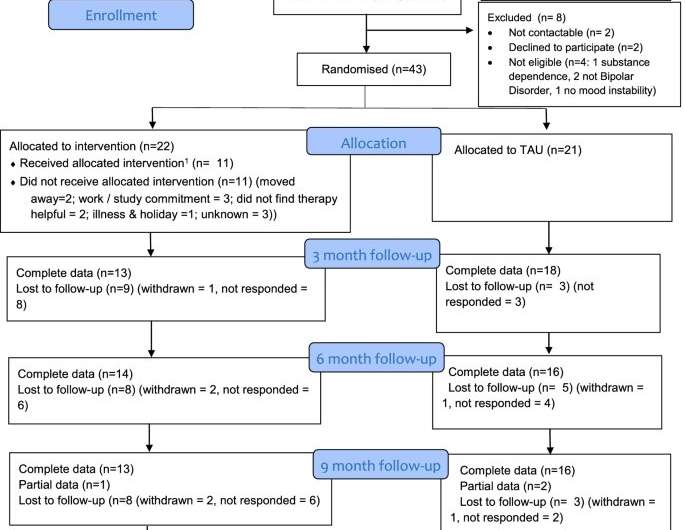Figure 1: CONSORT diagram of trial recruitment and retention. Credit: DOI: 10.1186/s40345-021-00226-4
Researchers have conducted a new trial to identify how an existing psychological therapy can be adapted to help people cope with and manage frequent Bipolar mood swings.
A subgroup of those with bipolar spectrum disorders experience ongoing mood fluctuations outside of full episodes. These shifts in mood can sometimes make it difficult to live life to the full, and can be a source of difficulties in relationships with others. There are currently few therapy options available for people living with dramatic weekly, daily or even hourly mood swings.
The ThRIVe-B program, carried out by researchers at the University of Exeter, involved taking an existing psychological therapy for another group of people that aims to help with emotion regulation, known as Dialectical Behavior Therapy (DPT), and adapting it for people who have these frequent bipolar mood swings.
DPT teaches skills both in acceptance of situations and emotional responses and is currently offered to people who have a diagnosis of Emotionally Unstable Personality Disorder.
"We have psychological therapies that can be helpful for people with bipolar but there's less available for people who have very frequent and ongoing mood swings within bipolar," said lead author Dr. Kim Wright, of the University of Exeter.
"We wanted to see how acceptable the therapy would be to the people who received it and do a test run to identify what changes need to be made before conducting a larger trial."
The study took place in Devon and Cumbria and 43 participants were placed randomly into two groups.
Half of the participants received the new therapy. The other half continued with their usual NHS care.
The therapy lasted for around six months and participants were interviewed at various stages and asked to complete questionnaires when the study started and three, six, nine and 15 months later.
Participants were invited to reflect upon their behavioral response to extreme mood and activation states day-to-day and modify this where necessary.
In DPT this is achieved by building mindful awareness skills and through giving participants a framework through which to appraise their emotional responses and to develop alternative ways of relating to and managing these.
The therapy involved attending 16 group sessions and also some individual sessions with a therapist.
To support this, there was home practice as well as handouts and a ThrIVe-B smartphone app where participants could rate their mood.
"Because of the small numbers of people tested, the trial was never intended to evaluate the benefit of the treatment itself. Instead, the study aimed to evaluate feasibility and acceptability of this therapy," Dr. Wright explained.
"Overall, the study shows that there is demand from people with bipolar for a psychological therapy addressing ongoing mood instability, and that a larger trial of a therapy like this is feasible.
"Our next steps will be to refine the therapy in line with what we learned from this study, such as simplifying content and considering individual rather than group delivery."
Psychological therapy for mood instability within bipolar spectrum disorder: a randomized, controlled feasibility trial of a dialectical behavior therapy-informed approach (the ThrIVe-B program) is published in the International Journal of Bipolar Disorders.
More information: Kim Wright et al, Psychological therapy for mood instability within bipolar spectrum disorder: a randomised, controlled feasibility trial of a dialectical behaviour therapy-informed approach (the ThrIVe-B programme), International Journal of Bipolar Disorders (2021). DOI: 10.1186/s40345-021-00226-4
Provided by University of Exeter
























